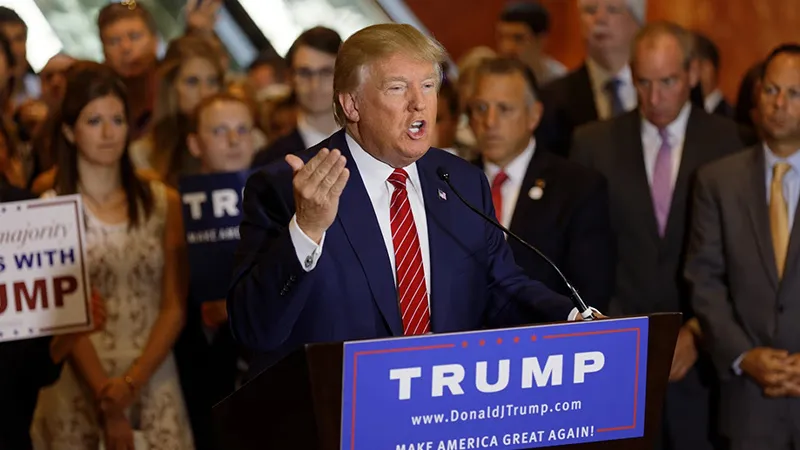-
CENTRES
Progammes & Centres
Location
Donald Trump's victory has shown that it would be foolish to ignore voter’s messages during elections.

Every election verdict holds messages the voter is sending. One may agree or disagree with the messages, but it would be churlish to ignore and refuse to consider what is being conveyed.
One cannot understand the impulses, anxieties and concerns of a democratic society by denouncing its voters as bigoted fools.
Unfortunately, much of the commentary during and after the US presidential poll campaign and Donald Trump’s impressive victory has centred on what individual writers and analysts think of the man — rather than what the voter thinks of his or her life, family, society and country. Liberal elites and establishment political managers from both the Democratic and Republican Parties united to fiercely oppose Trump.
This was particularly so in the final few weeks when media partisanship and canvassing for Clinton reached a ridiculous extreme.
It is likely that this created a backlash — a revolt of the “little people” against the proverbial “pointy-headed intellectuals” — and took an outsider and political underdog with obvious personal angularities and policy shortcomings to the White House. In the eyes of his voters, Trump became the equivalent of Abhimanyu, surrounded by entrenched know-alls and incestuous insiders.
His rivals’ propaganda played right into his hands. It is easy to argue that Trump is no outsider but actually a millionaire with investments in real estate and casinos, among other businesses.
Yet, it needs to be emphasised that all four presidents since 1992 — Bill Clinton, George W Bush, Barack Obama and now Trump — have recast themselves as being from outside the Washington DC Beltway, as socially underprivileged or folksy (in the case of Bush) and more in tune with ‘real America’ than with the smooth set in America’s ‘broken capital’.
Of course, Trump took that positioning further. He calculated that lingering consequences of the 2008 financial crisis — over five million American families lost their homes, many more lost jobs and savings — and the creeping fear of Islamist terrorism had reached a critical intersection.
He combined, like others have in Europe, the economic agenda of the Left — protectionism, hostility to liberal trade, tariff walls — with the identity politics of the right and made a mockery of the traditional bipolarity of American politics.
Nevertheless, this election has indicated the limits of data journalism and data-driven predictions. It has been a triumph for political instinct and reading the emotions of voters.
If one went by preconceived numbers, then Trump, let alone win, was not supposed to get the nomination. He has made a whole army of media mavens and self-appointed intellectuals looks silly.
They have spent the last few hours consoling, quoting and retweeting each other and further establishing that they have little clue of how real people live and feel outside a narrow echo chamber.
For all his charm and personal manner, Middle America’s indictment of Barack Obama is equally devastating.
A few months ago, he was being compared to Ronald Reagan: as the Democrat who created a Left-Centre coalition and generated enough political capital to see a less charismatic successor candidate through.
It is apparent Obama’s legacy is a US more socially divided and paranoiac than the one he inherited. Where does that leave him in history? US’ new president has to square many circles. Obama’s Pivot to Asia had a naval as well as trade component.
Trump has rejected the latter (the TPP) and his voters are tired of external wars and wary of engagement in Asia.
However, the Trump constituency is also hostile to China and sees it as a political and military challenger. There is a paradox here that Trump has to address. Will — and can — he cherry-pick components of the Pivot to Asia? India will be watching.
Obama’s foreign policy led him to push Russia into China’s corner. One doesn’t have to be an admirer of Vladimir Putin — and this writer is not —to find such an approach tactically puzzling and lacking astuteness.
If Trump can wean away Putin from Xi Jinping’s embrace, he will give US and its friends, including India, some breathing space. The collateral impact on Pakistan — which has been fantasising of a Beijing-Moscow-Islamabad axis — will be obvious.
This commentary originally appeared in The Economic Times.
The views expressed above belong to the author(s). ORF research and analyses now available on Telegram! Click here to access our curated content — blogs, longforms and interviews.